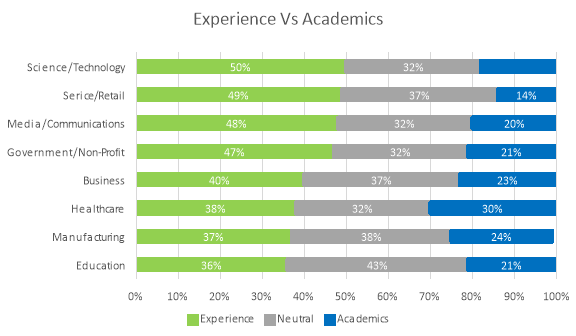With 81% of students admitting to feeling pressure to finding a job within six months of graduating, Fresh Student Living has looked at how valuable exams are to employers in the modern working world
The debate on the relevancy of exams continues, as universities across the globe and politicians alike engage in talks about scrapping exams. With the current Labour Leader, Jeremy Corbyn, recently stating: “We need to prepare children for life, not just for exams” at the National Education Union’s Conference in Liverpool, Fresh Student Living has explored whether exams have a place in today’s education system.
Are exams still relevant?
In 2011, Macquarie University in Australia debated whether to get rid of exams completely. They argued that exams fail to develop questioning, independent learners and instead promotes a superficial and inauthentic understanding of subjects.
While exams aim to test knowledge of a subject and have previously been an excellent form of assessment, changing times suggest they may not be as relevant as they once were as they don’t always accurately measure capability and skill. In 2012 research found that no-exam university course fuelled a rise in first-class degrees.
Recent research shows experience outweighs academics in most industries:

Increased concerns about student mental health
With research showing almost 90% of students experience stress, and 77% experiencing anxiety, more emphasis has been placed mental health in recent years, as demand for student mental health services has risen 50%.
According to studies, university students are likely to experience high levels of depressive symptoms, which affects how they learn, and impacts when they finish their degrees; meaning their careers and overall lives can be affected long after they have completed their courses.
Experience vs Exams – What do employers really want?
According to an in-depth survey by the Chronicle of Higher Education, 44% of employers place more weight on experience, particularly within industries like science and tech, service and retail along with media and communications.
Attributes that employers value most:
- Internships – 23%
- Employment during uni – 21%
- Degree – 13%
- Volunteer experience – 12%
- Extracurricular activities – 10%
- Relevance of coursework – 8%
- Academics – 8%
- Uni reputation – 5%
Should exams be removed altogether?
Research shows the biggest challenges for students include the transition to university life, coursework deadlines, exams and financial difficulties. In all universities, students are required to meet multiple milestones in terms of learning and knowledge. However, many feel that, instead of exams, good assessment programs and coursework are enough to evaluate performance and would provide a balanced, fair evaluation of how well a student can apply their skills to real scenarios. While exams may not demonstrate all knowledge, they do offer a thorough evaluation of a student’s knowledge.
What can students do at university right now to boost their experience?
In theory, education and experience go hand-in-hand. However, there are many things that students can do to proactively boost their expertise to work on their CV instead of solely focusing on the end mark, and further benefit their future career opportunities.
Work experience
A simple but effective way to gain experience in the industry that you want to enter, and the working world in general. For those who are unable to take on a placement, this is a great way to juggle learning and working on the odd day where you do have time and can also provide a foot in the door of a company you may work at in the future.
Internships
While it may not be easy to find one, internships typically last between two and 12 weeks and are sometimes paid. It’s possible to obtain one after university but should you want to gain experience before completing your course, out of term time internships are an ideal route and could lead to a job faster following graduation.
Placements
Unlike work experience or internships, placements require more commitment as they typically last for more extended periods. In some very fortunate cases, a placement can result in a guaranteed job following graduation.
Extracurricular activities and volunteer work
Depending on your desired career path extracurricular activities and volunteering experience can either help you to get into the field you want to pursue, as 22% of employers highly value these attributes when looking at potential candidates.
https://freshstudentliving.co.uk/2019/05/02/making-the-grade-are-exams-still-relevant











